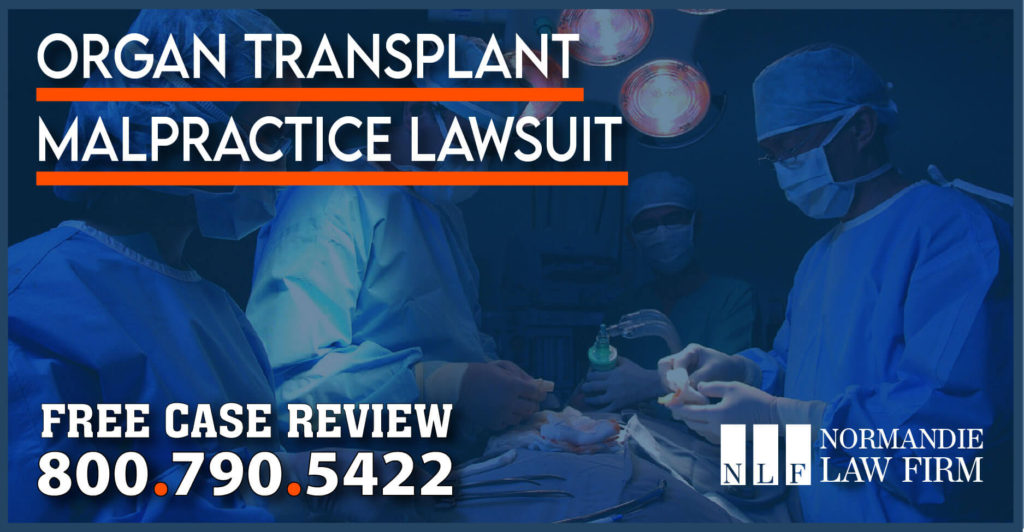
Organ transplants save the lives of thousands of people every year. There is a national list and registry of people who need organs, and people who are willing to donate live organs or organs from immediately deceased relatives. This list is maintained by the national Organ Procurement and Transplantation Network (OPTN), through the United Network for Organ Sharing (UNOS). Some people are on the list to get an organ transplant, and look forward to moving up that list to receive the organ that they need to survive. Anyone can be an organ donor, if the person has passed away or often too when the person is alive. People are carefully screened to determine if they are eligible to go on the national list to donate an organ when alive, and are also suitably screened after they die to pass along their organ to someone who vitally needs it.
What Is an Organ Transplant?
An organ transplant is when someone who is alive or dead offers to donate an organ to someone else, or to the registry of people who need those life-saving organs. There is never a cost to the donor’s family or to the estate of the person who dies to give the organ, tissue or heart to someone else. The reason that there is not a fee for donating an organ, is that it is a supreme sacrifice for someone to donate an organ, be the person living or dead. For this reason, there is never the worry that there will be a cost to managing the process of donation, which encourages everyone to consider being organ donors.
The Dark Side of Organ Transplants
But there is a dark side to the donation of organ tissue. At times, there are mistakes, unforeseen consequences, unknown diseases or problems with the organs, tissues or donor bodily systems that can reject the organ, or even kill the person receiving the donated organ or tissue. At the same instance, the person donating the organ or tissue for a live donation can also experience complications and die as a result of having participated in donating the organ to someone else. Even if the person donates a viable organ to a relative or close friend, either party can die as a result of the organ donation because of medical malpractice or other related factors, because of the organ donation. If you have suffered a medical malpractice related to an organ transplant, you need to talk to a lawyer who will make sure that your claims get sorted out to a winning conclusion.
What Types of Human Organs are Transplantable?
Every organ that is available in the human body is not eligible to be transplanted to someone else. Some organs have never been transplanted, and those organs don’t need to be transplanted because we can live without them if they are removed. The list of organs that can be transplanted are as follows:
- Liver
- Connective tissue
- Blood vessels
- Heart valves
- Heart
- Bone marrow
- Bone
- Skin
- Middle ear
- Corneas
- Intestine
- Lung
- Pancreas
- Kidney
Sometimes, even once an organ is screened and checked, it can be damaged, diseased or otherwise unsuitable for a transplant. In a perfect world, an organ is properly matched and reviewed to ensure that it is right for the transplant. Specialized teams of surgeons are in charge of retrieving an organ from the donor patient, and then transplanting it into another patient. If there is an issue with the organ, the surgeons taking the organ out of the donor patient must know that there is an issue with an organ. If there is a problem, then the transplant cannot proceed, it is that simple.
Surgeons of Organ Transplants Are Highly Trained
The surgeons who perform transplants on organs are highly trained medical specialists. There is no room for error in these cases of organ transplants. If you believe that your medical surgeon who managed your transplant has made a major mistake in regard to the management of your organ transplant, you should call us today. You will need to speak to an attorney who is ready to take on your case right now. This kind of mistake cannot happen, it should not happen, and is not swept under the rug with apologies of any kind by the medical team.
What Can Go Wrong with an Organ Transplant?
Literally anything can go wrong with the process of an organ transplant. One aspect of the organ transplant process that can go wrong is that a surgeon does not review the donor organ carefully enough before transplanting it into someone else. This is an egregious error that cannot stand or be defended away with a glance. If an organ that is slated for transfer has a problem with the function of the organ, it is no longer suitable for organ transplant.
Unfortunately, the types of issues that can be wrong with an organ are usually deadly to the patient receiving the donated organ. For example, if an organ has a tumor on the organ, then once it is transplanted, those tumors that are piggybacking on the organ will start to grow and fester in the patient who has just received the new organ. The fitness of purpose of an organ is that it will function “like new” for the person who needs the organ the most. There is no organ recipient on the planet who expects to receive a diseased or cancer ridden organ during an organ transplant, but it can happen.
Tumors and Problems Associated with Organ Transplants
The types of tumors, issues and problems associated with an organ to be donated include:
- Basal cell cancers
- Carcinomas
- Clinical infection confirmed by lab culture
- Unknown medications administered to donor patient before transplant
- Improper consent to perform the organ donation from family (deceased patient)
- Patient changed mind and revoked consent for organ transfer (alive patient)
- Patient not legally brain dead before harvesting the organ from donor patient
You need to call us to ensure that a lawsuit will be initiated for you on this case, if you have been the victim of an organ transplant malpractice claim. You need to discuss the case with a lawyer with experience in managing your case to the final winning conclusion.
Our Recent Verdicts and Settlements
$295,000
$250,000
$1.5 Million
$1.1 Million
$734,851
$460,000
When Is an Organ Transplant Procedure Considered to be Malpractice?
If the organ transplant procedure has any mistakes, malfeasance, problems, issues that result in the organ being rejected by the recipient’s body, drug interactions or other issues related to the transplant, there are problems related to malpractice. You need to talk to an attorney with expertise in creating a sense of urgency to settle this case for you, and we are ready to take your call right now!
Zero Fee Guarantee
We don’t charge you anything when you work with us. We are ready to sit down with you and discuss your case in a way that you can understand.
What If the Organ Dies Before the Transplant?
Organs that are in line to be transplanted and are removed from the organ donor, have a relatively short “shelf life.” These precious organs must be carefully preserved before the transplantation procedure, to keep the organ viable and strong. If an organ is attempted to be transplanted outside of this timeframe, there is a high likelihood that the organ will die before the transplant.
Heart Preservation Before Transplantation
The heart is able to be preserved outside the donor patient’s body for 4-6 hours. The heart can be damaged by prior heart failure, scarring or unseen heart disease. A healthy hear is able to help keep a recipient donor patient alive for many years to come, as the donor heart will pump blood throughout the person’s body to preserve life. If there is unseen damage to a heart, it will make the heart fail in the donor recipient’s body, thus negating the heart transplant.
Pancreas Preservation Before Transplantation
The pancreas is able to be preserved for 2-14 hours before it needs to be transplanted to the donor recipient patient’s body. The pancreas in our bodies makes insulin that uses glucose sugar for energy. It also breaks down proteins, fats and carbohydrates during our digestion daily. The pancreas can be transplanted with the kidney for a double transplantation procedure. But the pancreas is susceptible to the same disease as the kidneys, and that can make the pancreas not a viable organ for transplant in those cases.
Kidney Preservation Before Transplantation
Kidneys that are transplanted from a donor to a recipient are able to remain viable for around 36 hours. Kidneys are a commonly transplanted organ, and are always in need. This is because the kidneys monitor and manage blood flow from the heart to filter waste products throughout the body. When the kidneys fail, the person needs to go onto dialysis to have a machine clean out the toxins from the bloodstream. Kidneys can be damaged naturally from diseases such as high blood pressure, diabetes and cystic kidney disease. If any of this damage is missed when the kidneys are screened for viability, then the diseases will be given to the donor recipient who receives the kidney as well.
Liver Preservation Before Transplantation
The liver is able to live outside of the human body for 4-16 hours, if it needs to be preserved for a liver transplant to a human recipient. The liver has hundreds of features and functions to the human body, and is an essential organ to sustain human life. The liver works by breaking down toxins in the blood, making bile that helps our digestion, and is the site where vitamins and fats are stored for the body. Often the liver of one donor patient can be split to help the lives of two separate donor recipients as well. If there are unseen birth defects in the liver, chronic liver infections, Hepatitis or damage from drug or alcohol abuse, that liver will not be a viable liver for transplantation to a human donor.
Lung Preservation Before Transplantation
The lungs are able to be preserved for only 4-6 hours outside of the donor’s body, before they need to be transplanted into the recipient donor’s body. The lungs are an organ that carries oxygen through tiny air sacs to the body’s blood stream, while exchanging carbon dioxide. One lung can save a person’s life, and if a deceased donor gives both lungs, it could potentially help two separate people to continue living! The lungs may show signs of diseases such as cystic fibrosis, emphysema or pulmonary edema. These diseases would make the lungs ineligible for a lung transplant.
Intestine Preservation Before Transplantation
The intestines are an organ that works to carry digested food and nutrients through our bodies, for the benefit of keeping us healthy and strong from the foods we eat. The intestines are able to remain viable for a transplant while being preserved for 8-16 hours. The intestines are transplanted usually in infants and children. Sometimes there are issues with the transplants when the intestines are twisted or blocked before the organ is removed from the donor patient. These issues may make the organ look viable, but it may not be a viable transplant organ after all.
Organ Transplant Surgeons Cannot Make “Mistakes” with Organs
Surgeons know how to preserve organs before they are destined for organ transplants. They are the experts in reviewing an organ for transplant. If something goes wrong with the organ, it has to be the fault of the process of preserving the organ, the transplant procedure or something else within the surgeon’s control. If you are the victim of a bad organ transplant, you need to call the attorneys who specialize in this type of case. We are able to help you right now. We will sit down with you, take time and go over reviewing the case for you in language that you can understand.
In the case of a failed organ transfer, you need a lawyer with knowledge of this specialty. This person will be instrumental in helping you to manage this case to a settlement for you. We have lawyers who can help with the claims that you are making on this case, in regard to the medical malpractice claims that you have for a failed organ transfer. When you call us, you will be talking to an experienced attorney in Los Angeles, who will get you the money you deserve in this type of case for organ transplant malpractice.
Free Second Opinion
We can offer a free second opinion for you regarding your case. You can ask any questions that you may have regarding your claims, and we will answer them for you. We are here to give you the peace of mind that you deserve in this type of case. If you have suffered a failed organ transplant, and you have an idea that the surgeon, doctor or other clinical healthcare staff has performed negligently, then you may have a case. We need to sit down with you and get all the facts, to help you measure out what you need to recover from the wrongdoers in this case.

What If the Donor Patient Dies After the Transplant?
There can be many cases where the donor patient dies after a donor transplant operation. The person giving the organ may develop a complication after the operation to remove an organ, or may suffer a heart attack or stroke from the stress of the operation itself.
What If the Person Who Donated the Organ Dies After the Transplant?
Transplant recipients can die after they receive their donated organs. They may have complications during their surgery of the transplant, have issues with the immunosuppressant medications to treat rejection of the transplanted organ, or have problems with an acute rejection episode during the follow up period following the transplant operation.
There are many different drugs used for maintenance, prevention of organ rejection and other necessary medications for the recipient patient’s pre-existing conditions. At any time, there can be an adverse reaction to these drugs if the patient is not monitored carefully during the time following the organ transplant.
If the doctor or hospital did not carefully monitor the patient who just had a transplant of an organ carefully, that individual may have a lawsuit on the merits in that case. That individual may wonder, “Can I sue for everything that I am out in this case?” Yes, we can sue, and we want you to know that our Los Angeles case lawyers can file a lawsuit regarding the claims that you need reimbursed for this loss of a transplanted organ.
How Do I Start a Malpractice Lawsuit After a Failed Organ Transplant?
If you are ready to discuss a malpractice lawsuit after a failed organ transplant, you need to give us a call. When you call, our case attorneys in Los Angeles can sue in this type of case. We will discuss the case with you in language that you can understand. We are here for you, and will get you the money compensation that you need to be reimbursed for your personal injuries associated with a failed organ transplant.
Call for a Free Consultation
We are here to give you a free consultation regarding your claim and your case. We will review your case on the merits, and tell you what we can do to help you right now regarding getting the money you deserve on the claim. If you have a failed organ transplant, then you are going to need more time to heal. In the meantime, allow us to do the job of getting you back the money that you deserve for the medical malpractice that you experienced in this case.
Other Pages on Our Website Related to This Topic
Physician Assistant Medical Malpractice Lawsuit
Average Value Of Intubation Malpractice Lawyer
Broken Surgical Screws Medical Malpractice Lawyer











